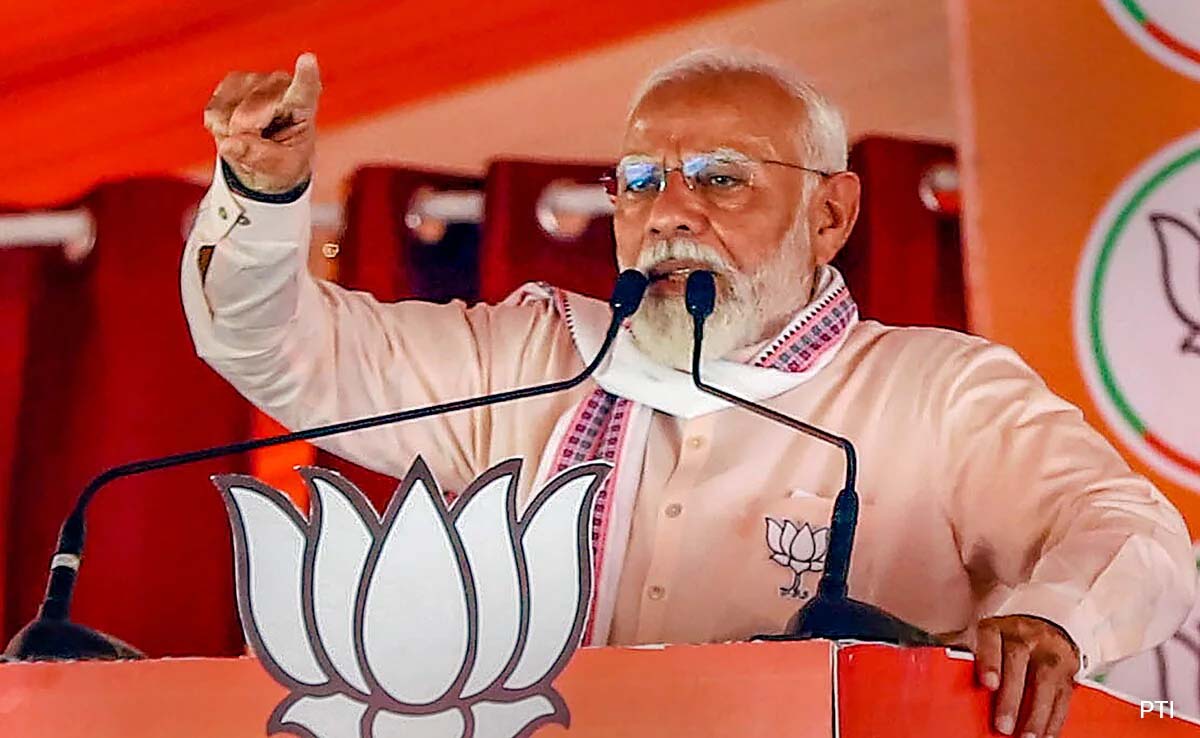In the midst of the escalating contention surrounding reservations for Muslims ahead of the Lok Sabha elections, the BJP’s dissent on religion-based quotas has come to the fore. Prime Minister Narendra Modi, emphasizing the constitutional principles, voiced that religion should not serve as the foundation for reservations.
During an interview with a news channel, the Prime Minister articulated that the impoverished populace encompasses Hindus, Christians, and Parsis, and all should benefit from reservations. “I have never stipulated that Muslims would be exempt from reservations. My stance revolves around the idea that reservations should not hinge on religion. The impoverished populace in our nation encompasses individuals from diverse religious backgrounds who should all have access to reservation benefits. The historical injustices faced by Dalits and Tribals compelled the framers of our constitution to make a judicious decision, a decision for which we are appreciative. No political faction opposes this notion,” asserted the Prime Minister.
Responding to queries regarding the potential risks associated with extending reservations based on religion to Muslims, PM Modi highlighted the deliberations of the Constitution’s architects who deemed religious-based reservations detrimental to societal cohesion in the long run.
“At the time of drafting the Constitution, luminaries such as Pandit Jawaharlal Nehru, Babasaheb Ambedkar, and Rajendra Babu were pivotal figures, representing a spectrum of ideologies. The absence of representatives from RSS or BJP and the inclusion of members from diverse communities facilitated extensive deliberations. It was unanimously agreed, after thorough discourse, that reservations based on religion would sow seeds of discord and impede societal progress in the long term. For centuries, communities such as tribals and Dalits grappled with social maladies. Caste-based discrimination and untouchability perpetuated injustices, necessitating rectification. It is noteworthy that this rectification was spearheaded not only by individuals like Nehru ji but also by those who may have been at odds with their ideologies,” elucidated the Prime Minister.
Furthermore, PM Modi reassured that Muslims would equitably benefit from the government’s initiatives if his administration secures electoral victory. “…we must rectify past transgressions and extend reservations to deserving individuals. I am guided by the ethos of our Constitution, aiming to uphold its sanctity. While I have consistently maintained reservations based on religion contradict the constitutional ethos, it does not imply exclusion of Muslims from benefiting. We proposed a 10% reservation for the economically disadvantaged in the general category in Parliament, encountering no opposition or contention,” he affirmed.
The Prime Minister also underscored his commitment to implementing all governmental initiatives, ensuring inclusivity across communities and religions, thereby upholding his pledge of social justice and secularism. “Even during the tenure of Atal Bihari Vajpayee’s government, our manifesto included pledges such as the construction of the Ram Mandir, abrogation of Article 370, and Uniform Civil Code. Now, under Modi’s administration, pending initiatives will be prioritized in the manifesto, while completed ones will not feature. I remain steadfast in completing all governmental schemes, ensuring that every community and religion receives equitable coverage. It is a testament to our commitment to social justice and secularism,” he concluded.









